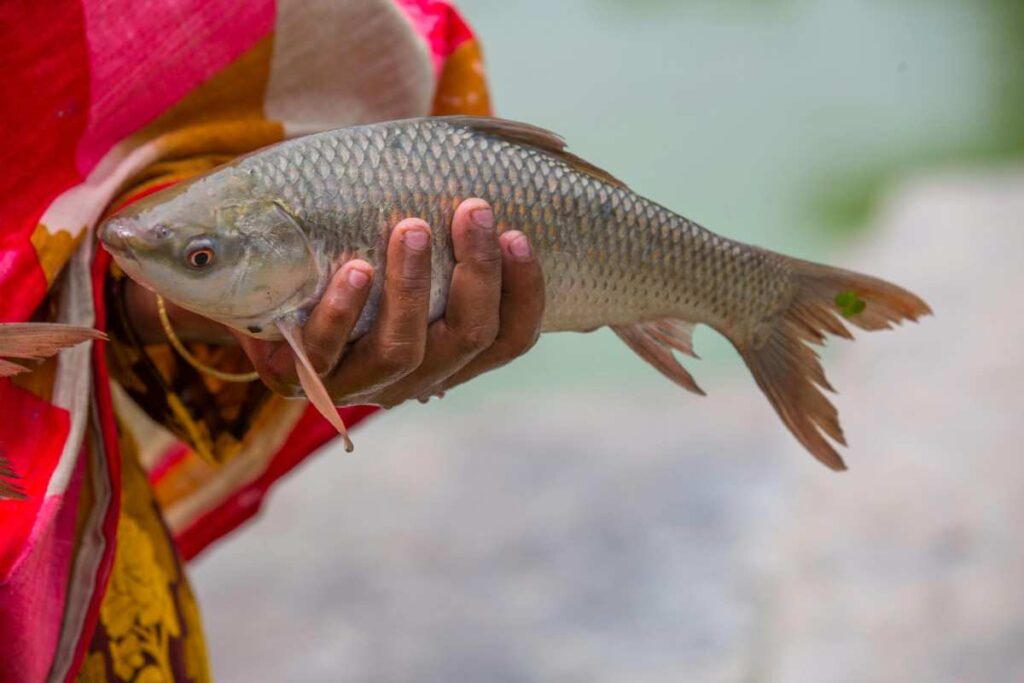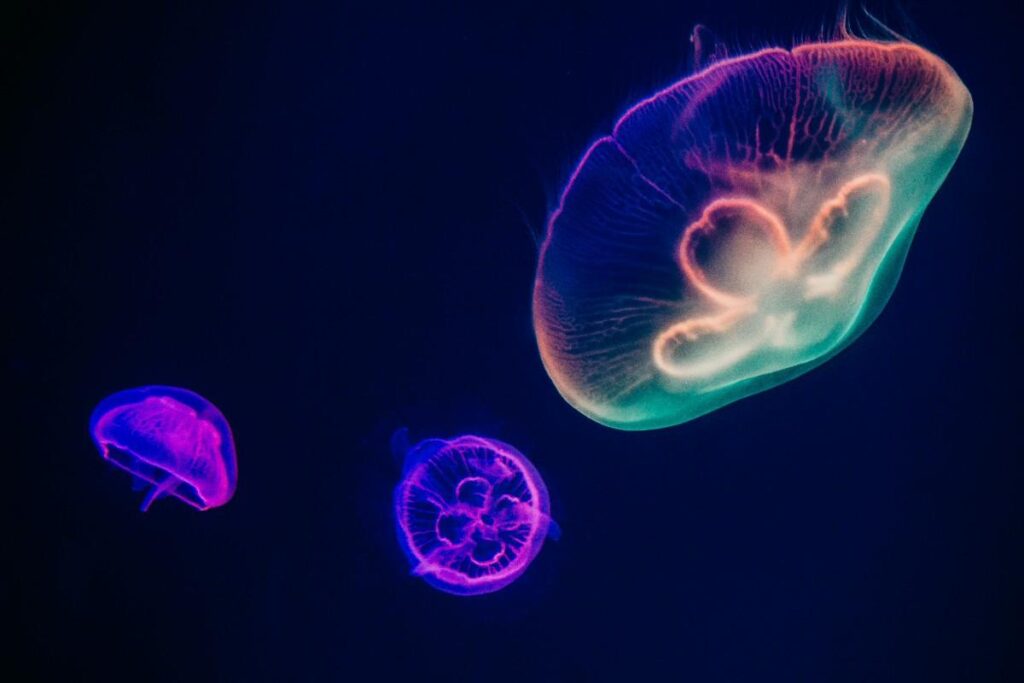Introduction: Diving into the Blue Heart of Earth
Marine Biology is the captivating study of life in the oceans, from microscopic plankton to majestic whales, offering insights into the ecosystems that cover over 70% of our planet. It’s a dynamic field that blends scientific discovery, conservation, and adventure to protect marine biodiversity. Whether you aspire to become a marine biologist, oceanographer, conservationist, or educator, Marine Biology provides a fulfilling career with profound environmental impact. This article will guide you through the essentials of Marine Biology, from its core principles to the skills and courses needed to excel. Moreover, it will highlight how Aime Connect’s education portal can support your journey with tailored resources. So, if you’re ready to dive into the wonders of the sea, let’s explore Marine Biology.
Decoding Marine Biology: What Is It All About?
At its core, Marine Biology examines the diversity, behavior, physiology, and ecology of marine organisms and their environments. It encompasses areas like marine ecology, ichthyology, marine mammalogy, and coral reef biology, addressing questions such as how ocean acidification affects coral or how fish adapt to deep-sea pressures. For instance, you might study shark migration patterns or assess the health of seagrass beds. Additionally, it employs techniques like scuba diving, underwater robotics, and genetic analysis to collect data. Modern Marine Biology integrates technologies such as satellite tracking and bioinformatics to advance research. Furthermore, it fosters conservation and interdisciplinary collaboration. By pursuing Marine Biology, you’re not just studying sea life—you’re safeguarding our oceans.

Charting Your Course: How to Become a Marine Biology Professional
To become a Marine Biology professional, you need a blend of education, field experience, and a passion for marine ecosystems. Start with a high school education strong in biology, chemistry, and mathematics, followed by a bachelor’s degree in Marine Biology, Biology, or a related field like Environmental Science. Advancing to a Master’s or Ph.D. in Marine Biology is often recommended for roles in research, academia, or specialized conservation projects. Practical experience through internships at marine research stations, aquariums, or conservation organizations is crucial. Additionally, certifications in scuba diving, marine GIS, or aquaculture enhance credibility. Networking through marine science conferences or platforms like Aime Connect opens opportunities. By combining education, training, and connections, you’ll build a clear path to a marine biology career.
Skills That Navigate the Depths: What You Need to Succeed
To thrive in Marine Biology, you need a robust skill set blending technical, analytical, and fieldwork abilities. Proficiency in marine research techniques, such as underwater sampling, species identification, or water quality analysis, is essential for accurate data collection. Moreover, strong analytical skills, including statistical analysis and ecological modeling, interpret complex marine data. Problem-solving and critical thinking address challenges like overfishing or coral bleaching. Additionally, familiarity with tools like R, GIS, or remotely operated vehicles (ROVs) enhances research capabilities. Adaptability keeps you aligned with trends like marine genomics or ocean restoration. Communication skills convey findings in reports or public outreach. By honing these skills, you’ll become a dynamic marine biologist ready to protect ocean life.
Fueling Your Marine Journey: Recommended Marine Biology Courses
Aime Connect offers a range of Marine Biology-related courses to support your aspirations. For beginners, introductory courses in marine ecosystems cover oceanography, marine biodiversity, and ecological principles. If you’re seeking specialization, programs in coral reef ecology, marine conservation, or fisheries biology dive into advanced topics like reef restoration or sustainable aquaculture. Additionally, courses in marine bioinformatics teach you to analyze genomic data, a growing trend. For leadership roles, modules in marine policy or conservation management align with career goals. Each course blends theory with practical tools like virtual underwater simulations, ensuring readiness. Explore Aime Connect’s portal for expert-led programs tailored to your Marine Biology journey.
Career Horizons: Job Scope and Placement in Marine Biology
Marine Biology offers diverse career paths across research, conservation, education, and industry. Roles like marine biologist, ocean conservationist, aquarium curator, or fisheries scientist are in demand as global efforts to protect oceans intensify. Moreover, emerging fields like marine biotechnology and deep-sea exploration create exciting niches. With a Marine Biology qualification, you can work in research institutes, marine sanctuaries, government agencies like NOAA, or NGOs, with competitive salaries and global opportunities. Aime Connect enhances your employability through placement support, connecting you with top employers. Whether starting as a research assistant or aiming for a Director of Marine Conservation role, Marine Biology promises a vibrant career.
Global Opportunities: Best Countries for Marine Biology Careers
Certain countries stand out as Marine Biology hubs due to their rich marine biodiversity and research ecosystems. The United States, with institutions like Scripps and extensive coastlines, excels in marine research and conservation. Similarly, Australia, home to the Great Barrier Reef, leads in coral ecology and marine protected areas. Japan, with its advanced marine tech, supports roles in deep-sea research and fisheries. Additionally, the United Kingdom’s focus on oceanography fosters opportunities in climate impact studies. These countries offer high salaries, cutting-edge facilities, and global recognition. Aime Connect’s globally relevant courses prepare you for certifications valued in these top markets.
Time to Dive: Duration of Marine Biology Courses
The duration of Marine Biology programs varies by level. A bachelor’s degree in Marine Biology typically takes three to four years, combining classroom study and field research. A Master’s in Marine Biology spans one to two years, focusing on specialized research. Doctoral programs, like a Ph.D., take three to five years, including advanced fieldwork and dissertation work. Supplementary certifications, like marine GIS or scuba instructor training, require three to six months. Aime Connect offers flexible preparatory courses (one to six months) for foundational skills or specialized topics like marine mammal research. Accelerated programs cater to professionals balancing commitments. By choosing a course that aligns with your goals, you’ll efficiently launch your Marine Biology career.
Learning Your Way: Online vs. Offline Marine Biology Courses
Choosing between online and offline Marine Biology courses depends on your needs and career stage. Online courses, available through Aime Connect, offer flexibility, ideal for preparatory students or professionals seeking certifications, with access to recorded lectures and virtual marine simulations. Conversely, offline bachelor’s, master’s, or doctoral programs, offered by universities, provide hands-on training through field expeditions and lab work, critical for core education. However, supplementary offline courses may require fixed schedules and travel. Online learning integrates tools like virtual coral reef models, ensuring practical exposure. For preparatory and supplementary studies, online courses balance convenience and quality, especially with Aime Connect’s innovative digital platform.
Aime Connect’s Advantage: Special Features for Your Success
Aime Connect transforms Marine Biology education with features tailored to your scientific and conservation ambitions. Firstly, personalized learning paths ensure courses align with your career goals, whether entering a bachelor’s program or advancing with a master’s or doctorate. Additionally, interactive tools like virtual underwater research labs and ecological data analysis exercises bridge theory and practice. You’ll also benefit from expert mentorship, with marine biologists guiding your progress. Furthermore, Aime Connect offers placement support, connecting you with top research institutes, aquariums, and conservation organizations. The platform’s community forums foster collaboration, linking you with peers and mentors. Many features, like marine conservation webinars and introductory resources, are free. Visit https://aimeconnect.com to discover how Aime Connect empowers your Marine Biology journey.
Conclusion: Your Marine Legacy Awaits
A career in Marine Biology is a profound commitment to exploring ocean life, protecting biodiversity, and addressing global environmental challenges through scientific discovery and conservation. From mastering critical skills to seizing international opportunities, this field offers a path to impactful leadership. With Aime Connect’s cutting-edge courses and dedicated support, you’re equipped to excel in this vibrant domain. Whether you choose online flexibility for preparatory studies or offline immersion for hands-on training, your success begins with the right education. So, embrace the challenge, nurture your passion, and let Marine Biology shape a rewarding future. Sign up today and transform your career with Aime Connect.
Thank you. Signup and Enjoy Free Special Features from Aime Education Portal – Login to Our Portal: https://www.aimeconnect.com



